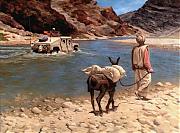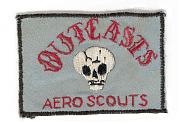... As I noted in a July 2005 piece for The Post ("Will This War Break the Army?"), the U.S. military, especially its ground forces, is being stretched to near the breaking point. Its long-term health may be at risk; it took over a decade to repair the damage that Vietnam inflicted on the military personnel system.
The debate over alleged Bush administration errors in Iraq - failing to send enough troops to Iraq in the first place, inadequate planning for stability operations after the fall of Baghdad, etc. - largely misses the point: America's ground forces are too small for what our foreign policy demands of them.
As a number of defense experts have observed, the problem - an Army that is too small - is systemic, transcending individuals and administrations. Its cause can be traced to the denigration of land power after the Gulf War of 1991.
In his classic study of the Korean Conflict, "This Kind of War," T.R. Fehrenbach expressed the conventional wisdom on land power's importance: "You can fly over a land forever; you may bomb it and wipe it clean of life . . . but if you desire to defend it; protect it; and keep it for civilization, you must do this on the ground, the way the Roman legions did . . . by putting your young men into the mud."
But that view came into question in 1991, after the U.S.-led coalition crushed Saddam Hussein's forces in Desert Storm with what seemed a combination of air power and information technology. Influential observers argued that this proved that a "revolution in military affairs" was underway, with information technology diminishing the importance of land power.
Some went so far as to suggest that traditional ground combat had become a thing of the past, that future U.S. military power would be based on precision strikes delivered by air or space assets, perhaps coordinated and directed by a handful of special operations soldiers.
There was no question that the Army needed to undergo a substantial transformation to remain strategically relevant. Then-Army Chief of Staff Gen. Eric Shinseki pushed hard to replace difficult-to-deploy heavy forces with medium-weight, wheel-mobile combat brigades supported by an advanced gun system.
As Donald Rumsfeld became secretary of defense in 2001, the Pentagon embraced a more radical understanding of this "transformation," aiming at an "information-age military force" that "will be less platform-centric and more network-centric." Unfortunately, as military historian Fred Kagan has observed, Rumsfeld's understanding of transformation is vague and confused. It is based on false premises and lies at the heart of our problems in Iraq...
Iraq has revealed several important things:
- Land power remains as crucially important as it was in Fehrenbach's time. Indeed, for the kinds of war we're most likely to face in the future, we need a larger Army...
- The "revolution in military affairs" wasn't as revolutionary as once believed...
- The equation of "transformation" and "technology" in Rumsfeld's Pentagon has harmed U.S. security. Military transformation has been shorn of its political and geostrategic context, reduced to nothing more than hitting the right military target independent of any political goal...












Bookmarks